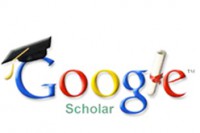Using the International Model of the Qatar University Arabic Debating Championship (IUADC) to Practice Critical Thinking at the Namlah Student Activity Unit, Universitas Muhammadiyah Surakarta
DOI:
https://doi.org/10.18196/mht.v6i1.19793Keywords:
Qatardebate, Critical Thinking, Arabic debateAbstract
The research background indicates a decline in the critical thinking skills of the Indonesian population, as evidenced by PISA data. Indonesians remain susceptible to misinformation due to insufficient literacy and critical thinking abilities. The researcher aims to disseminate information regarding the Qatar debate competition model, which may be unfamiliar to our academics. Indonesia secured first place in the international Arabic language debate, an achievement that is not widely recognized. The Namlah student activity unit is affiliated with the University of Muhammadiyah Surakarta and focuses on Arabic debate. Namlah has participated in multiple debate competitions, including the Arabic language festival at UNS, the UADC-UII in Yogyakarta, and the MTQMN in Aceh. The researcher aims to examine the potential of the Qatar Debate Model System, which utilizes the Asian parliamentary framework, in enhancing students' critical thinking abilities. This field research employs qualitative methods, utilizing data collection techniques such as observation, documentation, and interviews, which are subsequently validated through a credibility assessment. Analysis of data involving reduction, presentation, and conclusion. The study's results indicate that the IAUDC model enhances students' critical thinking abilities, with 12 indicators derived from Ennis' theory effectively implemented through this model.
References
Arif, Syamsuddin. 2020. "The Art of Debate in Islam Textual Analysis and Translation of Taskopruzade’s Adab al-Bahth wa Almunazarah." AFKAR Vol. 22, No. 1: 187-216.
Jannah, Fithrotul. 2017. "Pembelajaran Debat Bahasa Arab Melalui Model International Universities Arabic Debating Championship (IUADC), Qatar." Prosiding Konferensi Nasional Bahasa Arab Vol. 3, No. 3: 216-223.
Maulana, Aditia. 2020. "Implementasi System Qatar Debate dalam pelatihan Debat Ilmiah Bahasa Arab di Komunitas Al-Kindi UIN Maulana Malik Ibrahim Malang." PhD Dissertation, Universitas Islam Negri Maulana Malik Ibrahim.
Rahayu, Ucu, and Amalia Sapriati. 2018. "Open educational resources based online tutorial model for developing critical thinking of higher Distance Education Students." Turkish Online Journal of Distance Education Vol. 19, No. 4: 163-175.
Rasyid, Asriadi, and Zulwahyuni Namrullah. 2021. "Asian Parliamentary Debate Simulation in EFL Classroom." ASELS_2021.
Rico, Trinidad. 2017. "Searching for “Islam” in Heritage Practices and Debates in Qatar." Journal of Arabian Studies Vol. 7, No. 2: 211-224.
Sari, Dewi Puspita. 2017. "Pengaruh keterampilan berpikir kritis dan berpikir kreatif terhadap hasil belajar mata pelajaran Ekonomi kelas X IPS 1 di Man Mojosari." Jurnal Pendidikan Ekonomi (JUPE) Vol. 5, No. 1.
Suraya, Suraya, Anandita Eka Setiadi, and Nuri Dewi Muldayanti. 2019. "Argumentasi Ilmiah Dan Keterampilan Berpikir Kritis Melalui Metode Debat." Edusains Vol. 11, No. 2: 233-241.
Syahputra, Mulyadi, and Salwa Chaira. 2020. "THE CULTIVATION OF STUDENTS'PROBLEM-SOLVING SKILL THROUGH ASIAN PARLIAMENTARY DEBATE SYSTEM (APDS)." Getsempena English Education Journal Vol. 7, No. 1: 86-101.
Szenes, Eszter, Namala Tilakaratna, and Karl Maton. 2015. "The knowledge practices of critical thinking." The Palgrave Handbook of Critical Thinking in Higher Education: 573-591.
Widyamartaya, A., 2013. “Seni Menggayakan Kalimat: Bagaimana Mengembangkan, Mengefektifkan dan Mencitarasakan Kalimat. Kanisius.
Downloads
Published
How to Cite
Issue
Section
License
Please find the rights and licenses in Maharaat: Jurnal Pendidikan Bahasa Arab. By submitting the article/manuscript of the article, the author(s) agree with this policy.
1. License
The use of the article will be governed by the Creative Commons Attribution license as currently displayed on Creative Commons Attribution 4.0 International License.
2. Author(s)' Warranties
The author warrants that the article is original, written by the stated author(s), has not been published before elsewhere. It contains no unlawful statements, their co-authors authorize them to enter into these arrangements, does not infringe the rights of others, is subject to copyright that is vested exclusively in the author and free of any third party rights, and that any necessary written permissions to quote from other sources have been obtained by the author(s).
3. User/Public Rights
Maharaat: Jurnal Pendidikan Bahasa Arab has a spirit to disseminate the published articles as free as possible. Under the Creative Commons license, the journal permits users to copy, distribute, display, remix, transform, and build upon the material for any purpose. Users will also need to attribute authors and Maharaat: Jurnal Pendidikan Bahasa Arab to distributing works in the journal and other media of publications. Unless otherwise stated, the authors are public entities as soon as their articles got published.
Attribution — You must give appropriate credit, provide a link to the license, and indicate if changes were made. You may do so in any reasonable manner, but not in any way that suggests the licensor endorses you or your use.
4. Rights of Authors
Authors retain their rights to the published works, in these following rights;
Authors hold the copyright and other proprietary rights relating to the article, such as patent rights,
Authors hold the right to use the substance of the article in own future works, including lectures and books,
Authors hold the right to reproduce the article for its own purposes,
Authors posess the right to self-archive the article or upload it on the author's social media account or website with the link to the journal.
5. Co-Authorship
If more than one author jointly prepared the article, any author submitting the manuscript warrants that he/she has been authorized by all co-authors to be agreed on this copyright and license notice (agreement) on their behalf and agrees to inform his/her co-authors of the terms of this policy. Maharaat: Jurnal Pendidikan Bahasa Arab will not be held liable for anything that may arise due to the author(s) internal dispute. Maharaat: Jurnal Pendidikan Bahasa Arab will only communicate with the corresponding author.
6. Miscellaneous
Maharaat: Jurnal Pendidikan Bahasa Arab will publish the article (or have it published) in the journal if the article’s editorial process is completed. The journal editors may modify the article to a style of punctuation, spelling, capitalization, referencing, and usage that seems appropriate. The author acknowledges that the article may be published to be publicly accessible, and such access will be free of charge for the readers.
.png)





